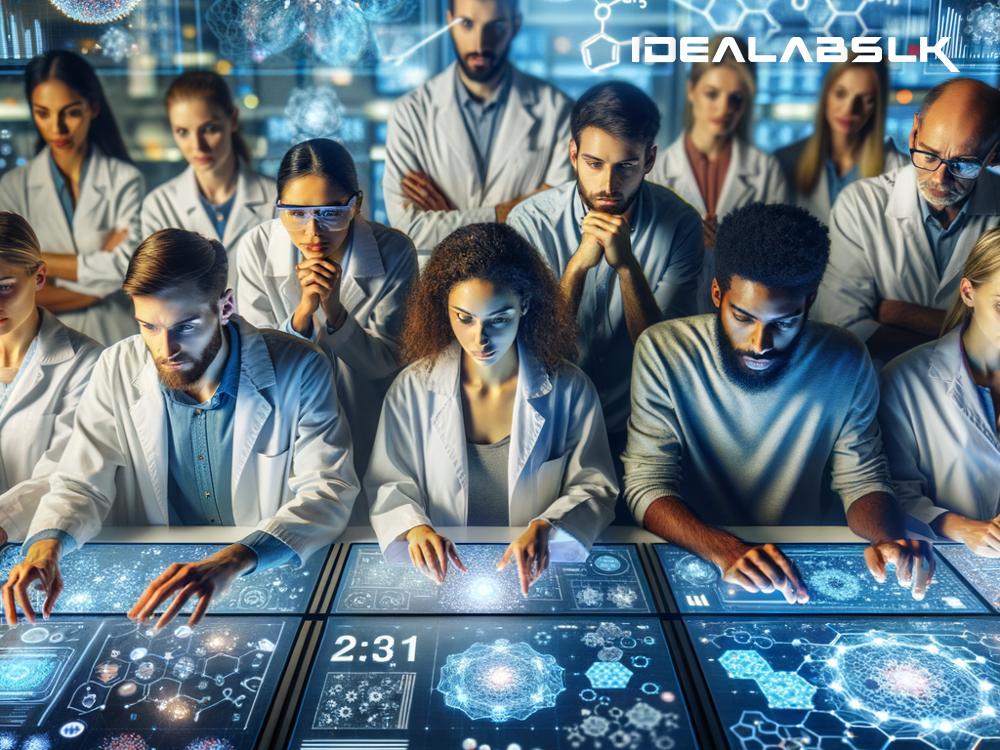How AI is Changing the Game in Drug Discovery: Finding Life-Saving Meds Faster
Imagine being sick and finding out there’s a medication that can make you better, but it was discovered faster than ever before. This isn't just wishful thinking; it’s becoming reality thanks to artificial intelligence (AI). The world of medicine is on the brink of a revolution, with AI playing a central role in finding new, life-saving drugs quicker than we've ever seen. Let’s dive into how AI is making a real difference in drug discovery, making the process not just faster, but also more efficient.
The Old Way vs. the New Wave
Traditionally, discovering a new drug is a marathon that can take over a decade and cost billions of dollars. Scientists start with a huge number of possible compounds and test them to see if any could potentially become a medication. This painstaking process involves a lot of trial and error, educated guesses, and, frankly, luck.
Enter AI, and the game changes significantly. AI can analyze massive amounts of data in the blink of an eye—a job that would take humans lifetimes to complete. It can predict which compounds are most likely to succeed as medicines, making the search much narrower and guiding scientists towards the most promising options much faster.
How AI Does the Magic
1. Crunching the Numbers: Think of AI as a super-smart robot that can read every science book ever written in seconds. It can then use that knowledge to find patterns and make predictions that would take humans years to figure out. For drug discovery, this means quickly identifying which molecules could be effective drugs.
2. Simulating Success: Before AI, scientists had to physically test each compound to see if it worked, which was like finding a needle in a haystack. Now, AI can simulate how a drug works in the body using computer models. This doesn’t just speed things up—it also reduces the need for early-stage testing on animals.
3. Learning as it Goes: One of the coolest things about AI is that it gets smarter over time. The more data it analyzes, the better it gets at predicting successful drugs. This means that AI's ability to find new medications will only improve, potentially making drug discovery faster and more successful with each passing year.
Real-Life Magic of AI in Medicine
Examples of AI's impact on drug discovery are already popping up. In one notable case, AI was used to find a new antibiotic in just three days—a process that might have traditionally taken years. Another project saw AI identify potential drugs for a rare disease in just a few months.
These stories are just the beginning. As AI technology continues to advance, we’ll likely see more and more examples of its success in bringing new, life-saving drugs to market much faster than ever before.
The Bigger Picture and Future Horizons
The faster discovery of drugs means diseases that today seem unbeatable could become treatable in the future. The implications go beyond individual health, promising a future where outbreaks and pandemics could be countered more swiftly and effectively. Additionally, speeding up the drug discovery process could make medications more affordable by reducing the costs associated with their development.
However, it's not all smooth sailing. The rush to harness AI in drug discovery brings with it ethical, regulatory, and safety considerations that need careful thought. The key will be finding a balance between speed and thoroughness, ensuring new drugs are not just developed quickly but are also safe and effective.
Looking Ahead
As we stand on the brink of this new era in medicine, the potential of AI to revolutionize drug discovery can't be overstated. What was once a slow, costly, and often uncertain process is becoming faster, more efficient, and, importantly, more hopeful. The journey from a disease needing a cure to having a medicine ready to go could get significantly shorter, thanks to AI.
In the not-too-distant future, we might look back at this moment as the beginning of a new chapter in medical history. A chapter where AI not only accelerates the discovery of life-saving drugs but also opens up new possibilities for treating diseases that today, seem insurmountable. This isn't just beneficial for those in need of medication now; it’s a promising development for everyone, potentially making the world a healthier place for generations to come.

